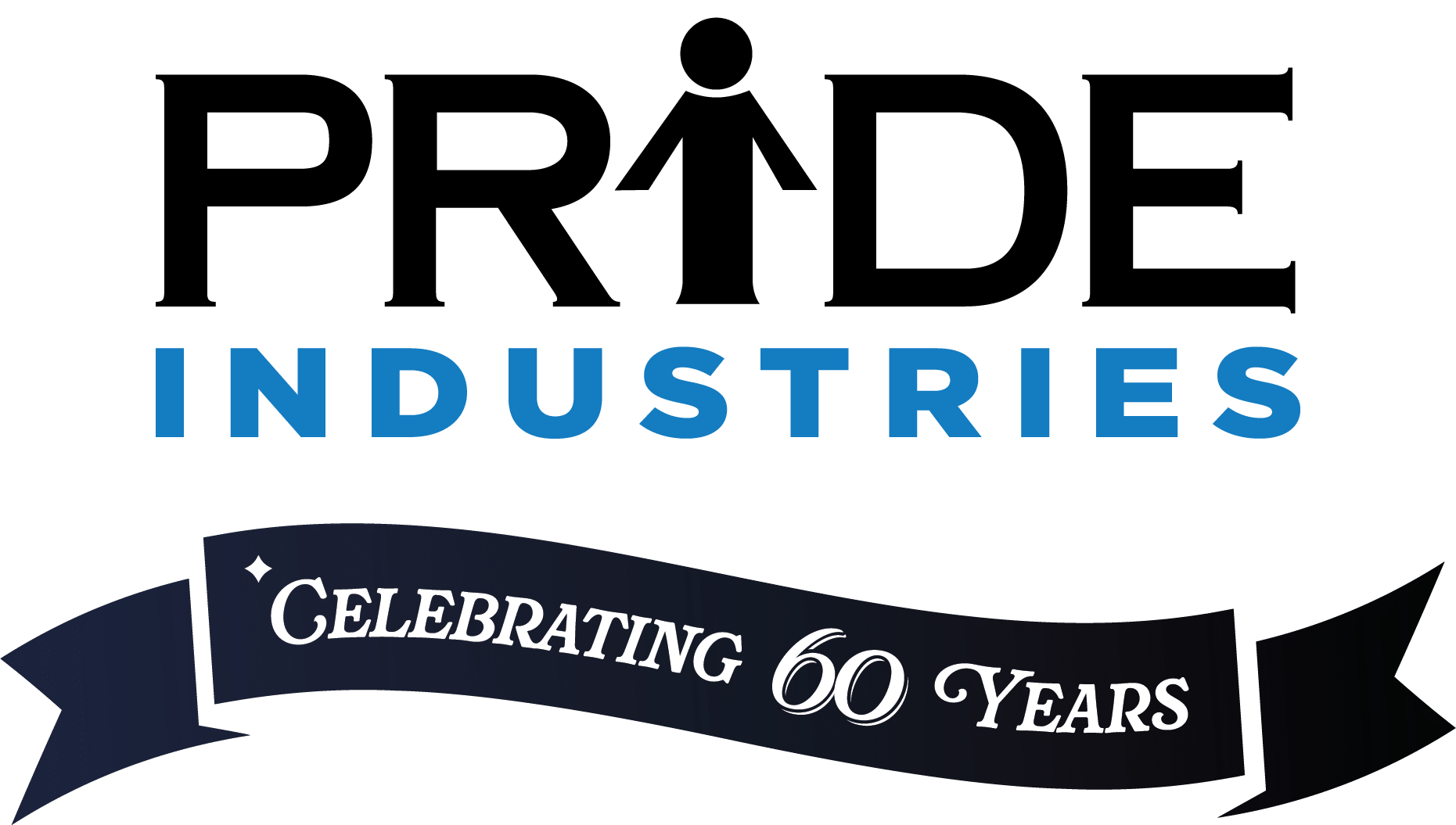Jobs for Deaf People
Providing Employment for Individuals with Hearing Impairments
Jobs for Deaf People
One of the key barriers that Deaf people and people with hearing loss can face in the workplace is communication barriers. Communication is a fundamental part of any job, but it can be particularly difficult for Deaf people and low-hearing people if resources like American Sign Language (ASL) translators, screen readers, captions, or other forms of visual information sharing and assistive technology are not available. According to the Hearing, Speech & Deaf Center (HSDC), Deaf people can “face discrimination in the form of ‘audism’ communication barriers, apathy, or hostile attitudes. Like other forms of discrimination, audism prevents Deaf people from achieving their true potential.”
PRIDE Industries has a long history of helping Deaf people and people with hearing loss on their employment journeys. In fact, with appropriate support and assistive technology, there are few jobs that Deaf people cannot do. We’ve placed thousands of Deaf and low-hearing people and people with other disabilities in entry-level, managerial, and executive positions.
Employment Services for Deaf People
Job Preparation
There are a number of ways we help Deaf people and people with hearing loss prepare for the job market, including:
- Skills assessment: We help Deaf people identify which of their skills best align with job opportunities.
- Skills development: We provide instruction and training in skill development to fill any gaps in employment readiness.
- Resume and interview preparation: We help Deaf people and people with hearing loss create resumes and prepare for in-person and online interviews.
- Accommodation analysis: We identify any workplace accommodations Deaf people may need, such as hearing aids, voice-to-text translations, and ASL interpreters.
Job Placement
Hearing loss should not limit Deaf people’s career options. Whether looking for a first job or for advancement, people with hearing loss have many options and opportunities. There are many jobs they can do. As with any job, training and specific education are sometimes required. When helping Deaf people, we consider their individual interests and their abilities as revealed by a skills assessment. We also take their needs into account. Some people with hearing loss are sensitive to noise, for example. We help candidates identify their needs and advocate for reasonable accommodations.
On-the-Job Support
Employment coaches support Deaf employees on the job by ensuring that they have:
- Reasonable accommodations: This includes a supportive environment, flexible work hours, and assistive technology.
- A welcoming and inclusive work environment: To achieve this, coaches educate staff about deafness and hearing loss, show them how to promote understanding and acceptance, and how to celebrate diversity.
- Training and development opportunities: This helps Deaf and low-hearing employees develop their skills and confidence, and progress in their careers.
- Recognition and rewards for achievement: This helps Deaf employees feel valued and appreciated and contributes to their overall well-being by providing career advancement opportunities.

Our Commitment to Service Excellence
PRIDE Industries holds the prestigious 3-year accreditation from the Commission on Accreditation of Rehabilitation Facilities (CARF), an international, nonprofit health and human services accreditor. This recognizes that we have made a specific commitment to put the needs of our participants at the center of the services we design and deliver, and that we strive to continuously improve efficiency, fiscal health, and service quality and delivery.
In part, this accreditation recognizes PRIDE Industries for:
- Providing excellent employment services, employee development services, and employment planning services.
- Being highly regarded in the community and building positive relationships with partners and employees.
- Holding safety as a high priority.
- High satisfaction from persons served, families, and other stakeholders.
- Longevity of leadership, which provides continuity to the organization’s mission.
CARF accreditation means that the CARF-accredited provider is committed to reducing risk, addressing health and safety concerns, respecting preferences of individuals (cultural or otherwise), and providing the best quality of care possible. It also shows that the accredited organization values the feedback and input of their customers with disabilities and is accountable to the community. And, finally, accreditation demonstrates that an organization has opened its service delivery and business processes to outside scrutiny to improve the quality of its programs.
FAQs: Jobs for Deaf People
-
There are many jobs that Deaf people can do, depending on their skills and interests. The most important thing is to find a job that is a good fit for the individual and that they are passionate about. Deaf people and people with hearing loss sometimes have speech disabilities which can further impact job options. Commom jobs for Deaf people include:
- Sign Language Interpreter: Interpreters translate spoken language into sign language and vice versa.
- Teacher: Deaf teachers can teach Deaf and hearing students in a variety of subjects.
- Medical billing and coding specialist: Medical coding is typically a job that consists of home-based computer work.
- Website development and design: Website development and design involves taking written specifications to build online sites, e-commerce stores, and more.
-
Resources are available to help Deaf and low-hearing people and people get jobs through normal hiring channels or through organizations dedicated to helping people with disabilities find jobs. Help is often available from vocational rehabilitation counselors who facilitate job searches and employment and provide assistive technology and other resources. It is often helpful to research companies that are known for being disability-friendly. Many companies are committed to hiring people with disabilities, and they may be more likely to accommodate your needs. Focus on skills and showcase past job success.
-
The unemployment rate for Deaf people in the United States is estimated to be around 22.5 percent, which is significantly higher than the general population unemployment rate of 3.6 precent. This is due to a number of factors, including the lack of accessible employment opportunities, the stigma associated with hearing loss, and the challenges of finding and keeping a job. There are many things that can be done to improve the employment rate for Deaf people, including increasing awareness of Deaf people and their options in the workforce, providing more accessible opportunities, and removing barriers to employment.


